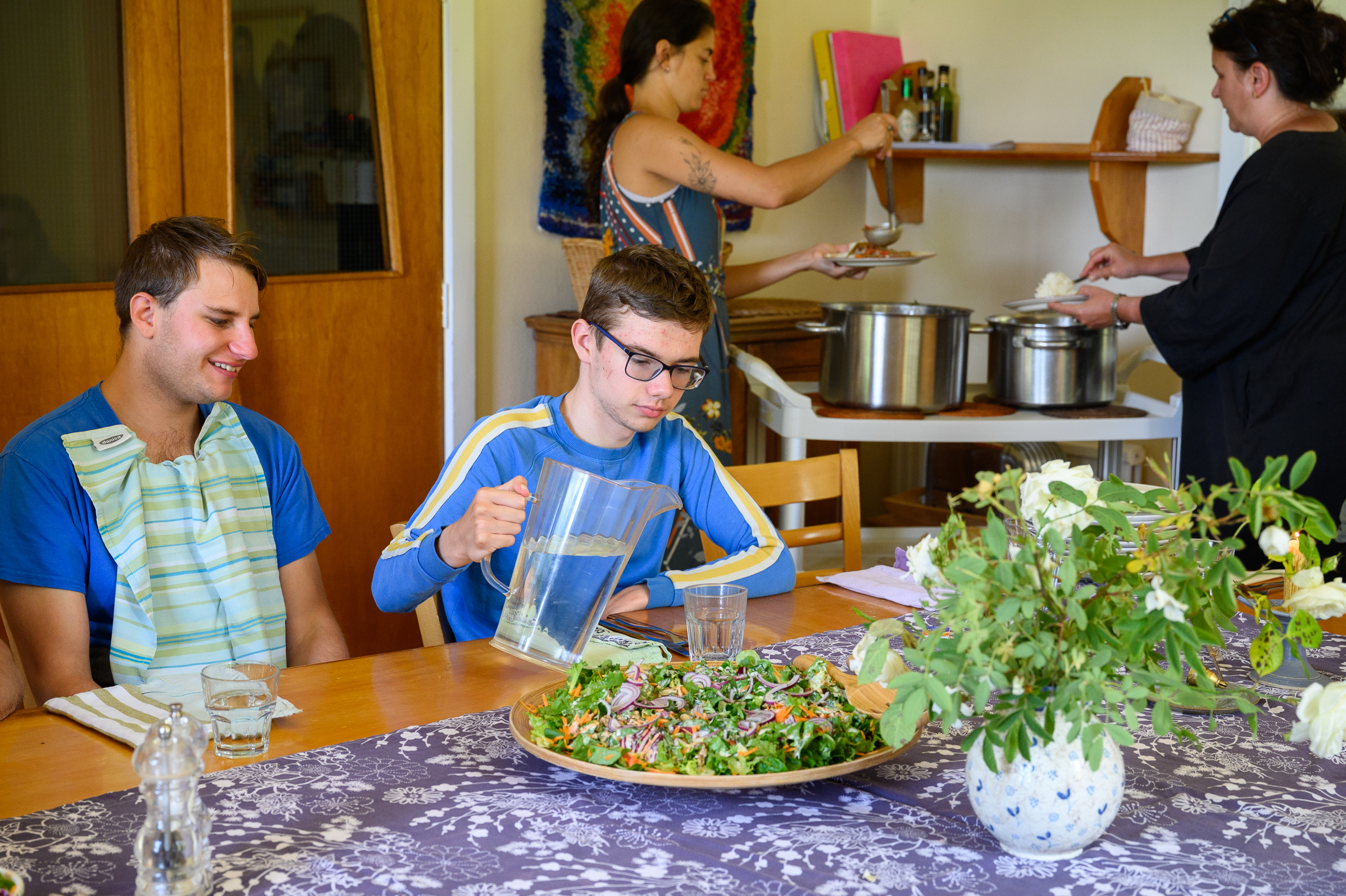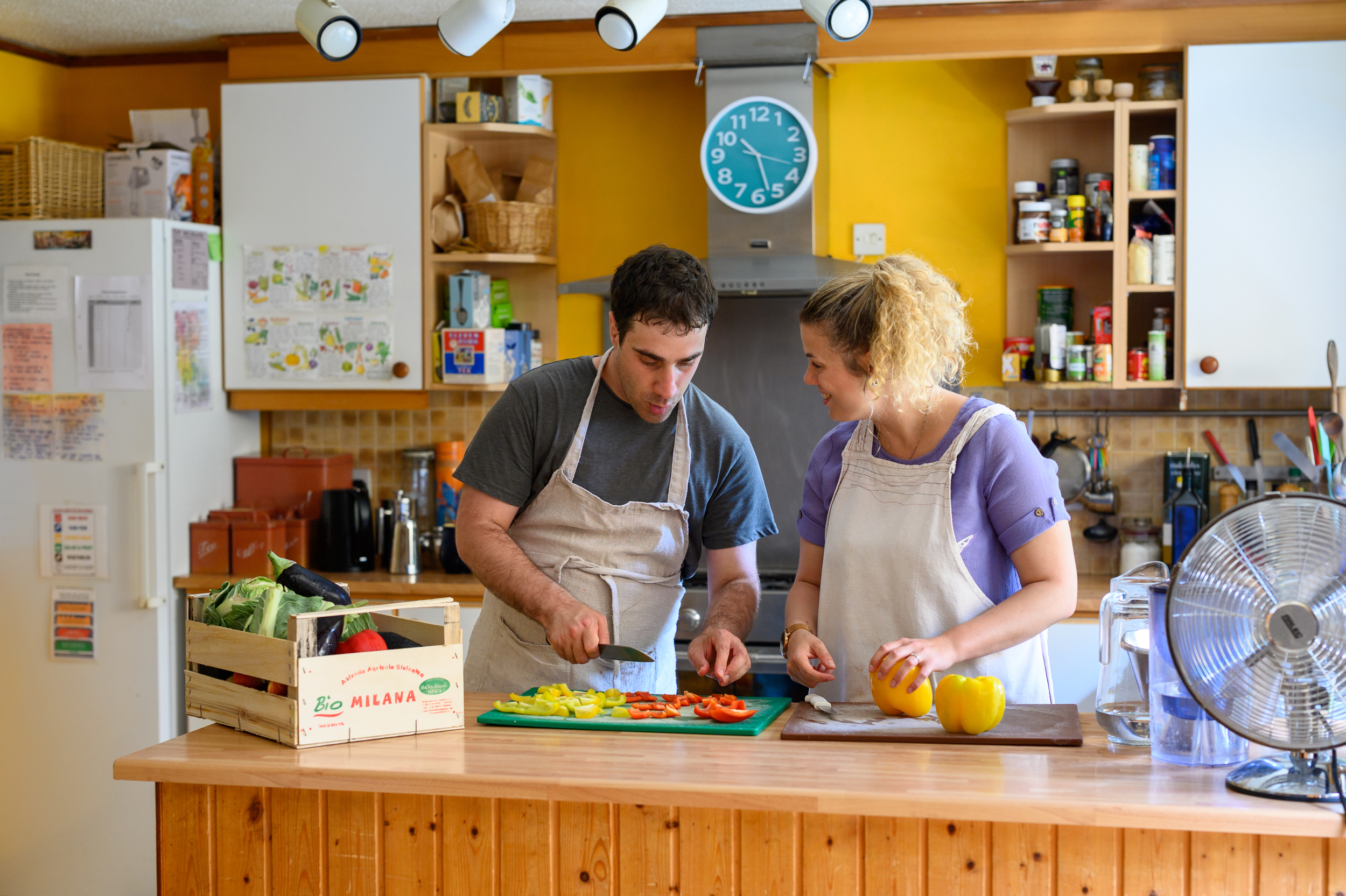Care & Support
As an organisation, at The Mount we believe that wellbeing and achievement are based on healthy relationships and feeling recognised and appreciated. We offer a safe, caring and supportive environment to students and supported Cohousing members.
Learning Through Life Sharing
Residential life sharing at the Mount offers support to learning disabled students across different households. The majority of our students are either 5 day or 7 day weekly boarders. Students live in a household sharing life with other young people with learning disabilities, acquiring greater independence by being encouraged to experience a positive interdependence in which they can recognise and respond to the needs of others as well as their own. Co-workers and their families share these households with the students, to create a warm and therapeutic environment, at the heart of which is person centered support. Each student is invited and encouraged to take an active role of taking responsibility and care for themselves, each other and their home.

By Participating in all aspects of care for the home, the student has real opportunity to take on ownership of the importance of their role within the household, be it laying the table for breakfast, emptying the recycling or preparing a meal, all of which is acknowledged and appreciated by their house community. Experiencing and participating in all the essential tasks of keeping a home healthy builds self-confidence and esteem as they discover and master new life skills. Day students participate in household tasks after meals further developing their skills.
Personal care and looking after their own bedroom and belongings is specific to each student and their particular needs, all of which is supported accordingly. Here too students are supported to take on greater ownership and independence to the best of their abilities. This includes cleaning their rooms and managing their own laundry.
All students benefit from the development of social and communication skills that are supported and reinforced within the houses. All meals are eaten as a household with guest tutors on many days, these meal times are opportunities to work on engaging appropriately with others, turn taking and building confidence. Additionally evening activities including board games, craft making or sports, give students further informal ways to develop their social and communication skills. More formal communication skills are developed through weekly house meetings where students can raise concerns and wishes. During these meetings weekend activities are discussed and initial plans made.
Wider skills also learned as part of living within the houses including weekly budgeting. Most weeks students have the opportunity to visit the local shop and or café to purchase small personal items. These activities give opportunity to reinforce money skills and communication skills. In addition to these, visits and weekend outings are planned and arranged within each house. A focus on activities that build cultural experiences or are physically beneficial are encouraged.
Overall the students and coworkers create a sense of belonging to a house during their year together. This gives students a real experience of future life sharing and truly enables meaningful life skills education.
In the case of supported Cohousing members, support plans and risk assessments are developed with the individual and reviewed annually, and more often if there are any major changes or increased risks.

Students live in a household sharing life with other young people with learning disabilities, acquiring greater independence but also encouraged to experience a positive interdependence in which they can recognise and respond to the needs of others as well as their own. Co-workers and their families share the households with the students and therefore get to know each student very well, which enables them to deliver truly person-centred support.
Young people from all over the world join The Mount community each year as volunteer co-workers, which adds tremendous diversity to the life of the students and cohousers and provides opportunities to learn at first hand about different backgrounds, cultures, customs and viewpoints.
Care and support at The Mount are underpinned by rigorous procedures in safe recruitment, induction and training for all resident co-workers, employed staff and volunteers, personal professional development, best practice review, positive behaviour management, risk assessment, recording and reporting, safeguarding, supervision and mentoring, health and safety, sustainability and financial stability. This is also strengthened by annual feedback reviews with staff, students, supported cohousers and their families.
All key groups of co-workers meet regularly to discuss best practice and carry out reviews followed up from the Quality Improvement Plan. The Mount is registered and inspected by the Care Quality Commission and its reports confirm the high standard of care and professionalism which permeates all areas of care and support at The Mount.
The latest CQC Report - 21st January 2020
